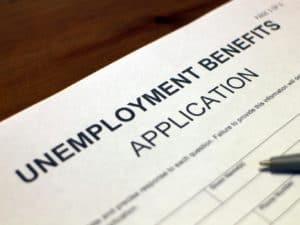 As far as uncomfortable stats go, they are right up there. Research carried out for The Independent suggests that three-quarters of people who rely on working age benefits say they feel shame about claiming, either sometimes, most or all the time. Not only that, but two thirds of people in work agree that claimants should feel that way.
As far as uncomfortable stats go, they are right up there. Research carried out for The Independent suggests that three-quarters of people who rely on working age benefits say they feel shame about claiming, either sometimes, most or all the time. Not only that, but two thirds of people in work agree that claimants should feel that way.
It paints a picture of a pretty bleak outlook given that one of the founding aims of the Beveridge Report, which launched the modern welfare state, was to free social assistance from stigma.
The research, which was carried out by OnePulse exclusively for The Independent, echoes the findings of a recent study from the University of Kent that found many people say they don’t think there is or should be any stigma attached to claiming benefits, but when they were asked to respond to more subtle statements such as ‘benefits are not for people like me’, just under half were conscious of some sort of benefits stigma. Most worryingly, such a stigma meant that a sizable number would or had put off making a claim.
Dangerous delays
Many people consider stigma itself to be damaging. Globally renowned psychologist Steven Pinker has argued: “The imposition of stigma is the commonest form of violence used in democratic societies.”
However, some commentators would say that there needs to be some stigma attached to benefits claims to keep the system affordable and stop more people from claiming.
Regardless, the idea that some claimants will delay applying for support because of feelings of shame is a real concern. Further research by the University of Kent has shown that one in four eligible people had either delayed or failed to apply for benefits because of the perceived stigma. That leaves them without the funds they need to live.
Indeed, analysis of last year’s Department for Work and Pensions by Church Action on Poverty revealed that between them, working age families and pensioners are failing to claim more than £10bn a year in benefits. Others suggest low income households are missing out on £15bn in benefits and tax credits.
And some believe the stigma is growing. Three quarters of the nation feels that press courage of ‘scroungers’ and cheats has increased the stigma of accepting benefits and there’s certainly no shortage of it. In the last month alone the press has covered a multitude of benefit cheats stories, including a landlord convicted of falsifying tenants to claim housing benefit; a pensioner who wrongly claimed £35,000; and a woman who claimed £33,000 in single occupancy benefits because she and her husband weren’t having sex and she thought she was entitled to it.
Such extensive reporting of fraud risks raising public perception that many claimants are cheating the system. In fact, there’s a huge disparity between the official estimate of benefit fraud and the public perception.
A 2013 Ipsos Mori survey found that the general public believed 24 per cent of benefit payments are fraudulently claimed. The official estimate is just 0.7 per cent. The most recent British Social Attitudes survey found that almost 80 per cent of people felt that “large numbers of people falsely claim benefits”.
However, it’s not just the idea that people are routinely cheating the system; there’s also anger against claimants who are seen to be exploiting it. For example, just this month a mother of 12 who claims £40,000 a year in benefits has appeared on ITV’s This Morning saying she wants another child and boasting of her taxpayer-funded lifestyle.
Yet this is also misleading. The charity Save The Children discovered that just 8 per cent of people on out-of-work benefits had more than two children. What’s more, the idea that people are choosing to opt out of work and use large families to fund a lavish lifestyle is also a myth. Families with three or more children are considerably more likely to be in poverty than two-child families.
The Scottish response
Change could be coming, however. Earlier this year, when the Scottish government received new welfare powers it pledged to end the stigma. Alex Neil, Scotland’s social justice secretary, said: “With our new social security powers we have the opportunity to take a different approach and develop policies for Scotland which will help to remove the stigma attached to accessing benefits.
“These policies will be based on principles which will ensure people are treated with dignity and respect. We want to show that social security can be fairer, tackle inequalities, and protect and support the vulnerable in our society.”
If they lead the way north of the border then perhaps the rest of the UK will return to viewing benefits as a support network and not something that people should feel ashamed for accepting. After all, when you include benefits for disabilities, supporting families or receiving a pension, almost two thirds of UK households receive some sort of state support.

